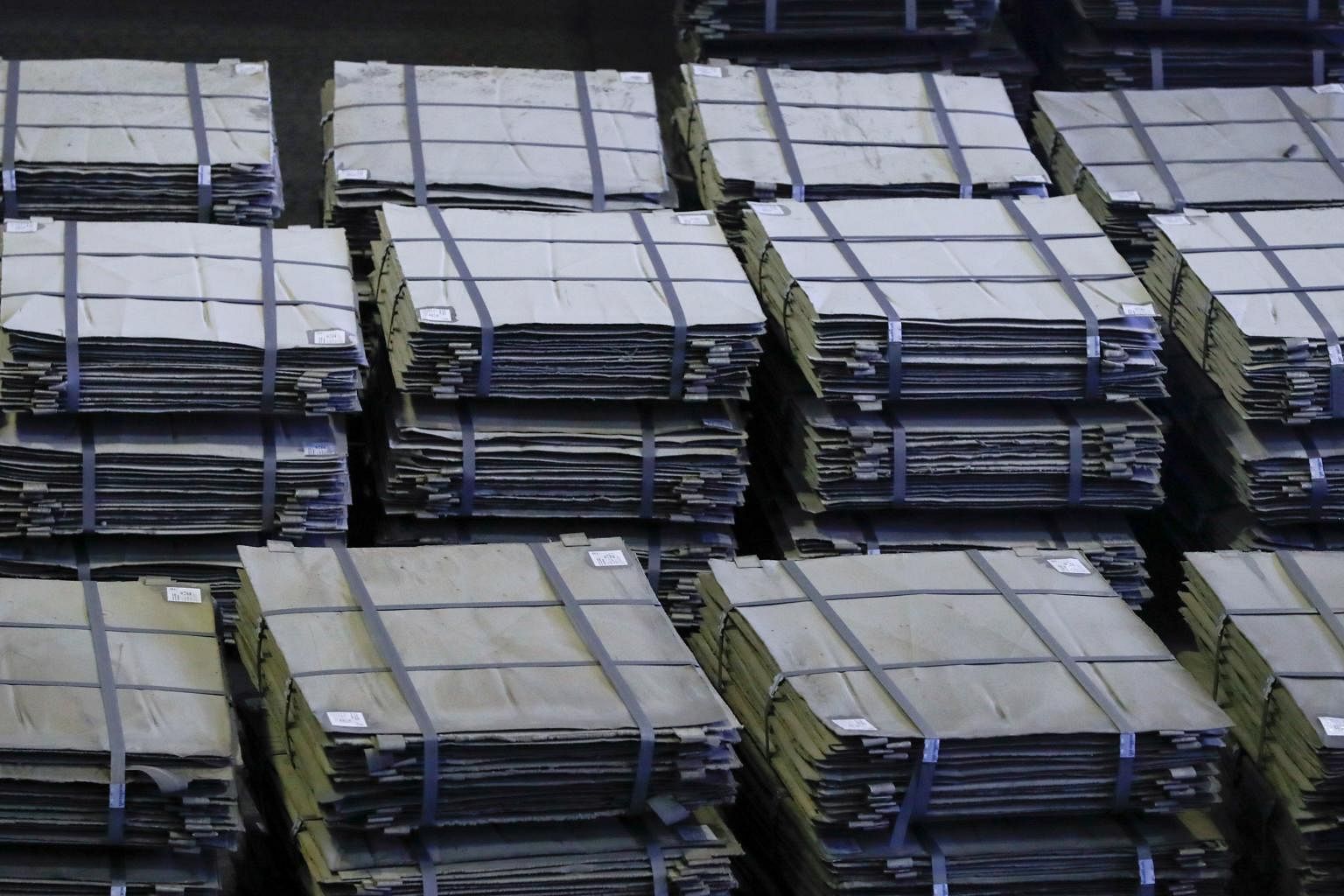Jokowi wants Tesla to make electric cars in Indonesia: Report
Sign up now: Get insights on Asia's fast-moving developments

Nickel is one of Indonesia's major exports along with coal and palm oil.
PHOTO: REUTERS
JAKARTA (BLOOMBERG, REUTERS) - Indonesian President Joko Widodo has urged electric vehicle (EV) maker Tesla to manufacture its cars, as well as batteries, in the country, in comments made to Bloomberg News on Thursday (Aug 18).
Jokowi, as the president is popularly known, said in an interview that Indonesia wants a “huge ecosystem of electric cars”, rather than simply draw on its natural resources to make batteries.
The president and senior government officials held meetings earlier this year with Tesla’s founder Elon Musk, during which they said they had asked him to consider the South-east Asian country as a car manufacturing hub, on top of making batteries.
During their meeting in May, Jokowi invited Musk to visit Indonesia in November, when the country will host a leaders summit for the Group of 20 major economies.
Tesla representatives did not immediately respond to a request for comment. Indonesia’s investment ministry did not respond to questions regarding progress on the potential deal with Tesla.
Luhut Pandjaitan, a senior Indonesian minister overseeing talks with Tesla, earlier this month told media the US firm has struck deals worth about US$5 billion (S$7 billion) to buy nickel products from nickel processing companies operating out of Indonesia’s Morowali in Sulawesi island. The nickel materials will be used in Tesla’s lithium batteries.
During the interview with Bloomberg, Jokowi also said Indonesia is considering imposing a tax on nickel exports this year to boost revenue. Officials have previously said this could come as soon as the third quarter.
An Indonesian government official said early in 2022 that the country is studying a progressive tax on nickel pig iron and ferronickel.
The world's epic shift into EVs has spurred a surge in demand for battery metals including nickel, lithium and cobalt.
While Indonesia has benefited from rising prices of nickel, also used to produce stainless steel, Jokowi wants the nation to move up the EV supply chain.
Ultimately, he wants to stop all exports of raw materials.
Indonesia wants to add more value locally to increase state revenues and provide more job opportunities, Jokowi said on Thursday.
"That's what we want also with bauxite, copper, tin, crude palm oil and others," he said. "We are not being closed, we are being open indeed."
Refining nickel can create up to US$35 billion (S$49 billion) of added value, the president said late last year. A tax may curb revenue from overseas sales in the short term, however, and it's also likely to push up global prices that have risen around a third since the end of 2020.
Nickel is one of Indonesia's major exports along with coal and palm oil. The country shocked global markets earlier this year when it temporarily banned palm oil shipments to keep inflation in check. The move, which came as countries grappled with soaring prices of kitchen staples, sparked fears of worsening food inflation.
The government subsequently changed course as stockpiles recovered, introducing a so-called domestic market obligation (DMO) that requires producers to sell some palm oil locally. The DMO would be withdrawn if the market is stable, although the national interest will be prioritised, Jokowi said on Thursday.
The president also confirmed in the interview that Indonesia would impose a carbon tax before the end of the year, an early step in its journey to carbon neutrality. First announced in 2021, the levy was delayed earlier this year as the government seeks to protect citizens from the impact of rising food and fuel prices.
Indonesia will become the first developing nation in Asia to put a tax on emissions, which officials have previously said would be initially set at 30,000 rupiah (about S$3) per tonne of CO2-equivalent for coal-fired power plants. The country is the world's biggest exporter of thermal coal used in power stations.
The nation has an "ambitious target" to get to net zero by 2060, but it will require technology and funding, Jokowi said on Thursday.
"We have renewable energy potential, but shifting from coal to renewable energy is not an easy thing because coal prices are still cheaper."


